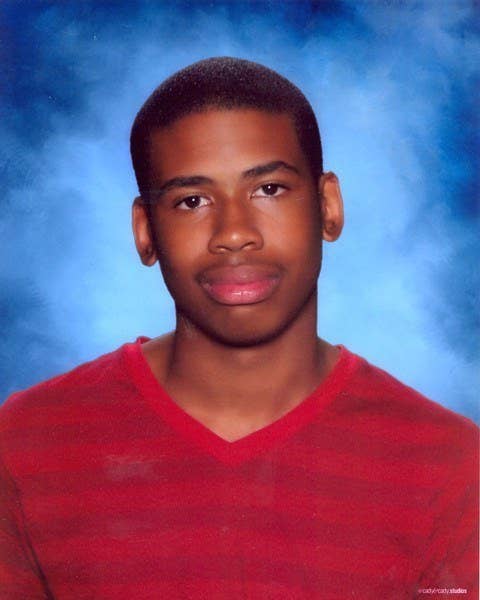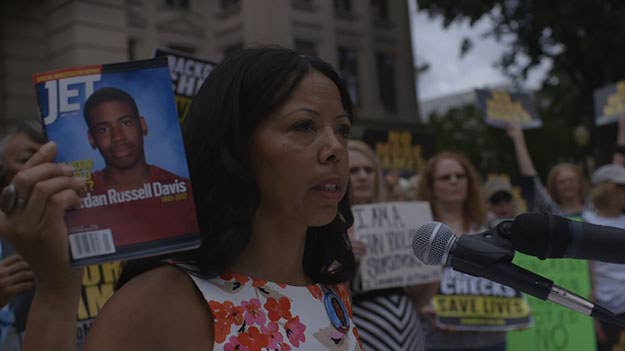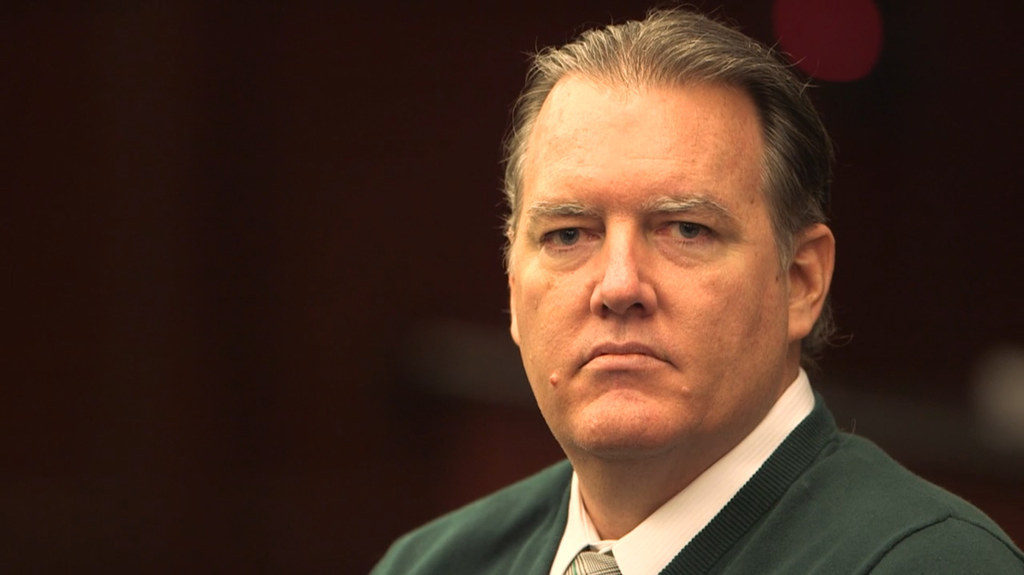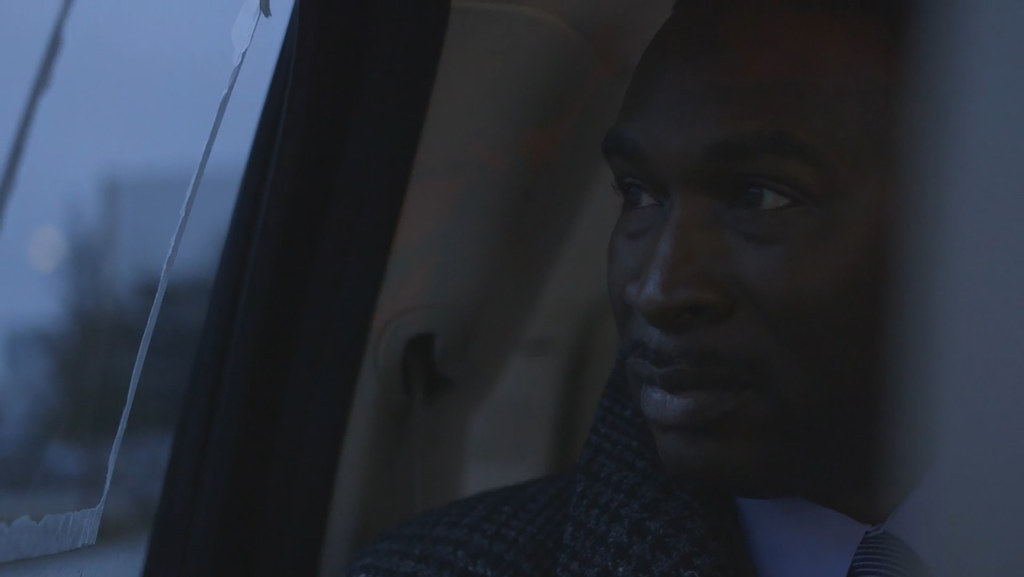
PARK CITY, Utah — There's a moment early on in 3 ½ Minutes where nearly everyone in the audience collectively laughs.
In the documentary, which was shown at the 2015 Sundance Film Festival, Lucia McBath is sitting at a table and fesses up to Ron Davis, revealing that the only reason she agreed to a naming rights deal with him (she'd name a son; he'd name a daughter) when they were expecting their first and only child together was because she found out early they were having a boy. Davis never knew that, the audience shares that laugh together, and it is one of the last times that particular sound is heard over the course of the 98-minute film.
The sounds heard most often throughout the rest of the screening were sniffles and, in some cases, outright bawling, given the subject matter centered on how Jordan Davis — whose parents called him their miracle baby after experiencing several miscarriages — would never see his 18th birthday. Davis was killed in 2012 at a Jacksonville gas station for, according to Florida prosecutors, refusing to turn down loud hip-hop music when asked by his killer, Michael Dunn. British filmmaker Marc Silver reached out to Jordan's parents about six months after Jordan's killing (which wasn't that long after fellow Florida teen Trayvon Martin was killed by George Zimmerman) because he felt this was an opportunity to document what he saw as a horrific trend in the States.
McBath, who, along with Ron Davis, has been a strong presence in the #BlackLivesMatter fight, heard the sobs of a theater filled with strangers, and was comforted by the empathy of people who never met her son, but who shared the pain of her and Davis' loss while watching them on their quest to seek justice for Jordan.

"People are paying attention now," McBath said in an interview with BuzzFeed News. "That's been the biggest hurdle in this country. These kinds of things have been going on for years in minority communities, and everyone turns a blind eye to it. As long as it's black-on-black crime, people go, 'Oh, those are those neighborhoods.' But now that these kinds of atrocities are happening, and it's being exposed … the country is going to have to be forced to deal with what's happening with gun culture and race."
Was their son a victim of racial profiling, considering Dunn argued that he feared for his life? In court, Dunn said he worried that the four black teens would kill him. He called them gangsters, and their music, according to his fiancée, "thug music." He also said that he thought he saw one of the kids wield a gun, which is what prompted him to retrieve his own gun. A gun was never found, and the teen boys claim they did not have one. (They also say in the documentary that they'd never really seen a gun before, and had he just pulled it out to scare them off, it would have worked.)

A reasonable line of thought here is that Dunn, like many, was inundated with media of young black boys behaving badly, and whether or not he realized it, was stereotyping them all — at first glance or by what they're listening to — to be violators of the law.
"It wasn't a political mission of ours to recontextualize or counteract stereotypical images. This is Jordan's story," Silver said. "Subtly, it repaints the picture that had previously been painted and perpetuated throughout the media about what a young black man represents. But this isn't done in a propagandistic way."
One of the things that makes this documentary gripping is the level of intimacy Silver was able to get from Jordan's parents. He takes us into McBath's bathroom as she's half-dressed, putting on eye makeup — which will wash away later when she gets emotional — and juggling a plate of breakfast. Silver also talks with the other teens who were in the car with their best friend, and these conversations provide other great but rare moments that spark laughter, like when one reveals that, try as he might, Jordan was never a great basketball player. Silver shows a side of the kids and the family that we never knew watching Dunn's trial. The night Jordan was killed, the only thing the boys were concerned with was getting chewing gum so that their breath was fresh when meeting teen girls.
Silver first met with Jordan's parents in the summer of 2013, about six months after his death and six months before the trial began. He spent time with the former couple and their families, trying to figure out who Jordan was and where he came from. Jordan's mom and dad mention that it was a no-brainer to do the film. They immediately saw that there could be greater good from exposing raw emotion and telling the story of their son, his slaying, and their lives as the courtroom battle unfolded.

"A lot of mothers and fathers roll up in a ball on the bed. They can't move. They can't take that first step out of the house," Ron Davis said in an interview with BuzzFeed News. "But … we felt very comfortable with Marc. He spent Thanksgiving with our family in 2013. He saw us pray at the table and hold hands and touch. And laugh. And do karaoke. I consider him a family member. And that's what you need to tell your story."
Making this documentary proved to be therapeutic, according to McBath. Together, they were able to talk out their frustrations and significant grief, mourning the loss of a son who was killed the day after Thanksgiving.
Silver received permission to film in the courtroom. In fact, his footage was fed to media outlets who aired the trial as it was happening. The filmmaker also was able to get taped, never-before-heard phone calls between Dunn and his fiancée (the jail where he was housed records all calls), which added to the emotion of the film; those who viewed it at Sundance gasped several times at the seemingly callous and unremorseful way Dunn talked about the teen boys, specifically Jordan. Silver said he finished the film about 10 days before airing it at Sundance.
The Sundance audience and potential future viewers already know how Dunn's part of the story ends: He was found guilty of first-degree murder and three counts of attempted murder this year. And he was sentenced to mandatory life in prison with no chance of parole on Oct. 17, 2014. He was sentenced to an additional 90 years of prison for the attempted murder accounts and for firing into a vehicle. But that verdict was not a given throughout the making of the film, nor is it the end of the story.
"It's always the risk you take in the world of documentary, not knowing how your story was going to unfold. But the bigger message was about why killings like that occur in the first place," Silver said. "The idea of unarmed young black men being killed by white men … that matter of perception is what the film is about."
On Jan. 31, HBO announced that they acquired 3 1/2 Minutes; an airdate has yet to be announced. "I am grieved that these continuing stories are everyday matters swept away," Sheila Nevins, president of HBO Documentary Films, said in a statement.
UPDATE
On Oct. 5, HBO announced that the documentary would debut Monday, Nov. 23 at 9 p.m. ET, which is the three-year anniversary of Jordan Davis' murder.

